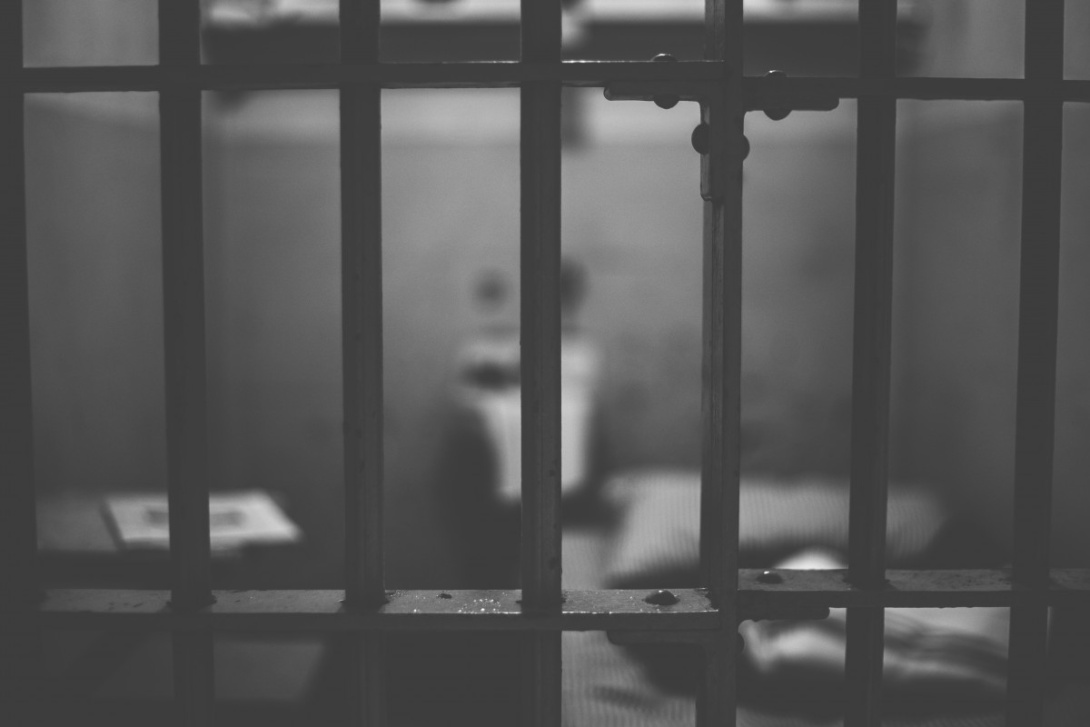How judicial elections contribute to mass incarceration

Judges in states with more expensive and more competitive judicial elections impose longer sentences when facing re-election, according to a new study. (Public domain photo.)
In the 38 states where judges are elected, judicial races are seeing more campaign cash than ever. New research shines a light on how competitive judicial races contribute to mass incarceration.
A study by professors Christian Dippel of UCLA and Michael Poyker of Columbia University examined sentencing decisions in 10 state court systems from 1980 to 2018. North Carolina was one of three states where they found a statistically significant relationship between judicial elections and longer sentences.
On average, North Carolina judges sentenced defendants to an additional 5.4 months around the time they filed for re-election than they did at the beginning of their term. The researchers also confirmed previous studies that found a link between judicial elections and longer sentences for violent crimes in Pennsylvania and in Washington state.
Dippel and Poyker examined possible explanations and concluded that these three states had more competitive judicial elections, as measured by the number of campaign donors and challenges to incumbent judges.
North Carolina's Republican-controlled legislature has recently passed laws specifically designed to make GOP candidates more competitive in judicial races. A 2013 law repealed the state's public financing program for appellate court candidates and raised contribution limits for judicial campaigns.
The study also looked at sentencing in Alabama, Colorado, Georgia, Kentucky, Minnesota, Tennessee, and Virginia but didn't find a connection there between judicial elections and tougher sentences. The authors note that judicial elections are less competitive in some states because the legal establishment frowns upon challenging incumbent judges.
Virginia was the only state where the researchers found judges were actually less likely to hand down harsher sentences at the end of their terms. Noting that Virginia judges are chosen by the legislature rather than elected, Dippel and Poyker point to studies suggesting that judges selected by politicians may pass shorter sentences to reduce prison-related government spending.
Dippel and Poyker's work builds on previous research that has looked at rulings in criminal cases by state supreme courts during justices' re-election campaigns, which are becoming more expensive and politicized. As the Brennan Center for Justice has noted, studies have shown that the more frequently TV ads air during a state supreme court election, the less likely justices are to rule in favor of criminal defendants.
The research from Dippel and Poyker also found that judges in seven states passed longer sentences for black defendants. In Georgia, for example, judges imposed an extra 2.5 months on black defendants. In Minnesota, North Carolina, Pennsylvania, and Tennessee, the average was less than two months. The disparity was around one month in Washington. Virginia was not analyzed because it doesn't provide data on defendants' race.
The relationship between harsher sentences and defendants' race was by far the strongest in Alabama, where judges sentenced black defendants on average to an additional six months of jail time.
The study confirms earlier research that demonstrated racial disparities in sentencing, some of which connected those disparities to judicial elections. For example, a 2017 dissertation by Kyung Park, now a professor at Wellesley College, revealed a relationship between racially biased sentencing and state trial court elections in Kansas. Park found that incarceration rates rise by 2.2 to 2.6 percentage points in an election year — but only for black defendants. That translates to a 10 percent increase in the likelihood of incarceration for black defendants in election years.
This research has important implications for Southern states, which have some of the highest incarceration rates as well as dramatic racial disparities in incarceration. To address these disparities, the Sentencing Project, a criminal justice reform advocacy group, recommends "adequate and regular training on the role of implicit, unchecked bias by key decision makers in the criminal justice system."
Tags
Billy Corriher
Billy is a contributing writer with Facing South who specializes in judicial selection, voting rights, and the courts in North Carolina.
